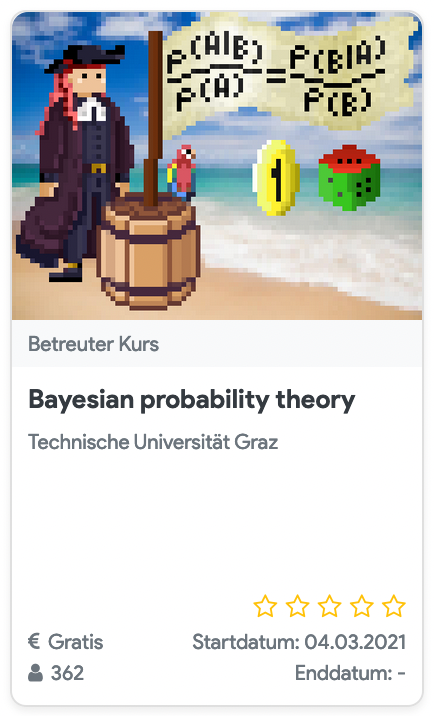We are happy to announce that the online course about „Bayesian probability theory“ started last week.
Content:
„The primary motivation for this course is to warm a broader audience to probability theory, as it is central to all scientific fields. Or as E.T. Jaynes – one of the most important researchers on probability theory of the last century – put it: „Probability is the logic of science.“
This course equips you with the methods of probability theory and enables you to deal with uncertainties, qualify decisions, assign probabilities and estimate parameters and models. The Bayesian approach provides techniques to update „partial truth“.
As a whole, this MOOC delivers the basics that are needed and benefitial for the fields of machine learning and data science.“
Feel free to register to course and joint it for free: [Registration page of the course]

